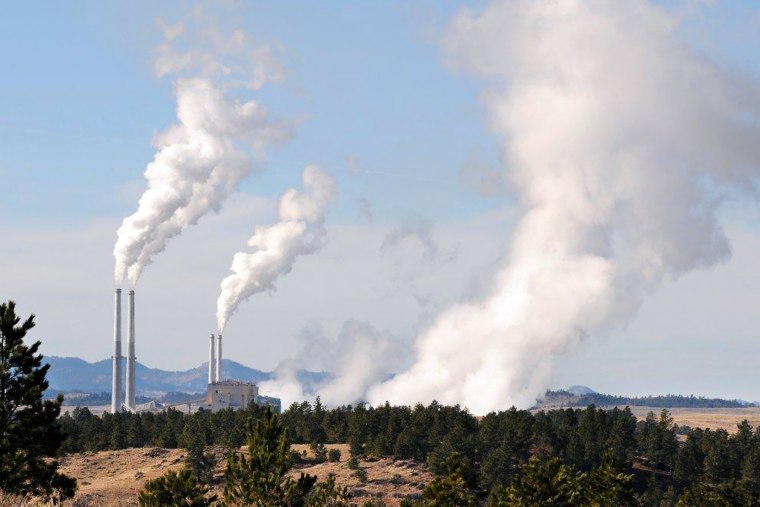Seventeen GOP members of Congress signed a resolution on Wednesday promising to take "meaningful and responsible action" to address human-caused climate change. It is the largest number of Republicans ever to join an action-oriented climate initiative in "maybe ever," said Jay Butera, a congressional liaison for Citizens' Climate Lobby, which helped put together the resolution. "I've been working on this issue for 10 years," he told me. "This is a high-water mark." Of course, these 17 Republicans represent just 7 percent of the House GOP.The resolution, which is entirely symbolic, is a remake of a 2015 pledge which put 11 House Republicans on record agreeing with the scientific fact that humans cause climate change. Like the 2015 resolution, this year's resolution states that it's a "conservative principle" to "be good stewards of our environment, responsibly plan for all market factors, and base our policy decisions in science and quantifiable facts on the ground." It acknowledges that, left unaddressed, climate change will have devastating impacts on "key economic sectors," as well as on vulnerable populations.
The antipathy toward climate change programs begins with the EPA, where funding cuts focus on President Obama's Clean Power Plan, climate change research, international climate change programs, and so forth. But it doesn't end there.The State Department cuts also make a point to end the Global Climate Change Initiative and other international efforts on the issue. The Commerce Department reductions includes significant cuts to the National Oceanic and Atmospheric Administration (NOAA), one of the major agencies conducting climate change research, and the budget outlines relatively mild cuts to NASA that target its Earth science programs.The budget outline eliminates funding for TIGER, a grant-making program in the Transportation Department, most of whose funding has gone to "rail, transit and bicycle projects designed to reduce carbon emissions as well as congestion," per Politico's Michael Grunwald. And the Energy Department budget eliminates two programs providing loans for companies working on clean energy and clean vehicles, respectively, as well as ARPA-Energy, a widely praised agency created in the 2009 stimulus bill that provides early-stage funding for clean energy research and development that venture capital often won't.
